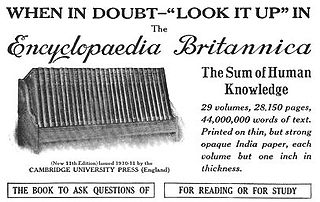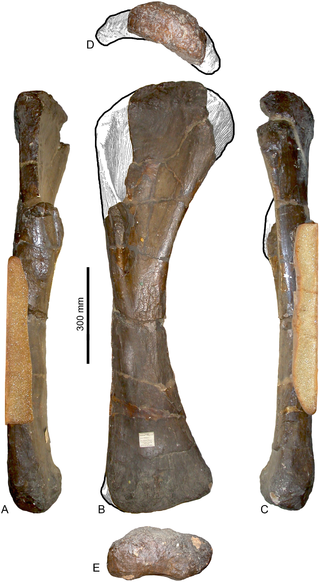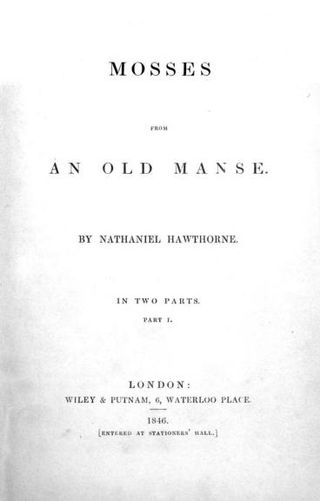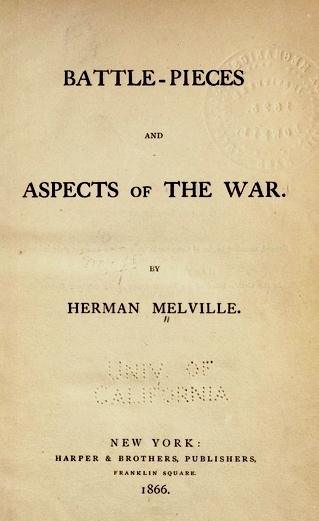
Herman Melville was an American novelist, short story writer, and poet of the American Renaissance period. Among his best-known works are Moby-Dick (1851); Typee (1846), a romanticized account of his experiences in Polynesia; and Billy Budd, Sailor, a posthumously published novella. Although his reputation was not high at the time of his death, the 1919 centennial of his birth was the starting point of a Melville revival, and Moby-Dick grew to be considered one of the great American novels.

Moby-Dick; or, The Whale is an 1851 novel by American writer Herman Melville. The book is the sailor Ishmael's narrative of the maniacal quest of Ahab, captain of the whaling ship Pequod, for vengeance against Moby Dick, the giant white sperm whale that bit off his leg on the ship's previous voyage. A contribution to the literature of the American Renaissance, Moby-Dick was published to mixed reviews, was a commercial failure, and was out of print at the time of the author's death in 1891. Its reputation as a Great American Novel was established only in the 20th century, after the 1919 centennial of its author's birth. William Faulkner said he wished he had written the book himself, and D. H. Lawrence called it "one of the strangest and most wonderful books in the world" and "the greatest book of the sea ever written". Its opening sentence, "Call me Ishmael", is among world literature's most famous.

Typee: A Peep at Polynesian Life is American writer Herman Melville's first book, published in 1846, when Melville was 26 years old. Considered a classic in travel and adventure literature, the narrative is based on Melville's experiences on the island Nuku Hiva in the South Pacific Marquesas Islands in 1842, supplemented with imaginative reconstruction and research from other books. The title comes from the valley of Taipivai, once known as Taipi.
Susan Eloise Hinton is an American writer best known for her young-adult novels (YA) set in Oklahoma, especially The Outsiders (1967), which she wrote during high school. Hinton is credited with introducing the YA genre.
"Bartleby, the Scrivener: A Story of Wall Street" is a short story by the American writer Herman Melville, first serialized anonymously in two parts in the November and December 1853 issues of Putnam's Magazine and reprinted with minor textual alterations in his The Piazza Tales in 1856. In the story, a Wall Street lawyer hires a new clerk who, after an initial bout of hard work, refuses to make copies or do any other task required of him, refusing with the words "I would prefer not to."

The Book of Wisdom, or the Wisdom of Solomon, is a Jewish work written in Greek and most likely composed in Alexandria, Egypt. Generally dated to the mid-first century BCE, the central theme of the work is "wisdom" itself, appearing under two principal aspects. The first aspect is, in its relation to humankind, wisdom is the perfection of knowledge of the righteous as a gift from God showing itself in action. The second aspect is, in direct relation to God, wisdom is with God from all eternity. It is one of the seven sapiential or wisdom books in the Septuagint, the others being Psalms, Proverbs, Ecclesiastes, Song of Songs, Job, and Sirach. It is one of the deuterocanonical books, i.e. it is included in the canons of the Catholic Church and the Eastern Orthodox Church, but most Protestants consider it part of the Apocrypha.

An out-of-print (OOP) or out-of-commerce item or work is something that is no longer being published. The term applies to all types of printed matter, visual media, sound recordings, and video recordings. An out-of-print book is a book that is no longer being published. The term can apply to specific editions of more popular works, which may then go in and out of print repeatedly, or to the sole printed edition of a work, which is not picked up again by any future publishers for reprint.

Mardi: and a Voyage Thither is the third book by American writer Herman Melville, first published in London in 1849. Beginning as a travelogue in the vein of the author's two previous efforts, the adventure story gives way to a romance story, which in its turn gives way to a philosophical quest.

Visible Speech is a system of phonetic symbols developed by British linguist Alexander Melville Bell in 1867 to represent the position of the speech organs in articulating sounds. Bell was known internationally as a teacher of speech and proper elocution and an author of books on the subject. The system is composed of symbols that show the position and movement of the throat, tongue, and lips as they produce the sounds of language, and it is a type of phonetic notation. The system was used to aid the deaf in learning to speak.

Pelorosaurus is a genus of titanosauriform sauropod dinosaur. Remains referred to Pelorosaurus date from the Early Cretaceous period, about 140-125 million years ago, and have been found in England and Portugal. Thomas Holtz estimated its length at 24 meters.

A Wonder-Book for Girls and Boys (1851) is a children's book by American author Nathaniel Hawthorne in which he retells several Greek myths. It was followed by a sequel, Tanglewood Tales.
The Piazza Tales is a collection of six short stories by American writer Herman Melville, published by Dix & Edwards in the United States in May 1856 and in Britain in June. Except for the newly written title story, "The Piazza," all of the stories had appeared in Putnam's Monthly between 1853 and 1855. The collection includes what have long been regarded as three of Melville's most important achievements in the genre of short fiction, "Bartleby, the Scrivener", "Benito Cereno", and "The Encantadas", his sketches of the Galápagos Islands.

Northwestern University Press is an American publishing house affiliated with Northwestern University in Evanston, Illinois. It publishes 70 new titles each year in the areas of continental philosophy, poetry, Slavic and German literary criticism, Chicago regional studies, African American intellectual history, theater and performance studies, and fiction. Parneshia Jones is director of the press. It is a member of the Association of University Presses.
Melville House Publishing is an American independent publisher of literary fiction, non-fiction, and poetry. The company was founded in 2001 and is run by the husband-and-wife team of Dennis Loy Johnson and Valerie Merians in Hoboken, New Jersey. The company is named after the author Herman Melville. It has a reputation as an "activist press" and publisher of left-leaning books.

The bibliography of Herman Melville includes magazine articles, book reviews, other occasional writings, and 15 books. Of these, seven books were published between 1846 and 1853, seven more between 1853 and 1891, and one in 1924. Melville was 26 when his first book was published, and his last book was not released until 33 years after his death. At the time of his death he was on the verge of completing the manuscript for his first novel in three decades, Billy Budd, and had accumulated several large folders of unpublished verse.

Joseph Coleman Hart (1798–1855) was an American writer. He is now best known as the first person to assert in print that William Shakespeare was not the true author of the plays published under his name. His novel Miriam Coffin influenced Herman Melville, though Melville was also highly critical of Hart.

"Hawthorne and His Mosses" (1850) is an essay and critical review by Herman Melville of the short story collection Mosses from an Old Manse written by Nathaniel Hawthorne in 1846. Published pseudonymously by "a Virginian spending July in Vermont", it appeared in The Literary World magazine in two issues: August 17 and August 24, 1850. It has been called the "most famous literary manifesto of the American nineteenth century."
George Thomas Tanselle is an American textual critic, bibliographer, and book collector, especially known for his work on Herman Melville. He was Vice President of the John Simon Guggenheim Foundation from 1978 to 2006.

Battle-Pieces and Aspects of the War (1866) is the first book of poetry published by the American author Herman Melville. The volume is dedicated "To the Memory of the Three Hundred Thousand Who in the War For the Maintenance of the Union Fell Devotedly Under the Flag of Their Fathers" and its 72 poems deal with the battles and personalities of the American Civil War and their aftermath. Also included are Notes and a Supplement in prose in which Melville sets forth his thoughts on how the Post-war Reconstruction should be carried out.
Harrison Mosher Hayford was a scholar of American literature, most prominently of Herman Melville, a book-collector, and a textual editor. He taught at Northwestern University from 1942 until his retirement in 1986. He was a leading figure in the post-World War II generation of Melville scholars who mounted the Melville Revival. He was General Editor of the Northwestern-Newberry The Writings of Herman Melville published by Northwestern University Press, which established reliable texts for all of Melville's works by using techniques of textual criticism.












